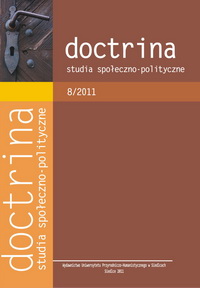Podmiotowy zakres immunitetu w polskim systemie prawnym
Abstrakt
Immunity is a typical legal institution which gives the person enjoying it an ability not to underlie given regulations, regulations that other people are obligated to comply. Based on possessing immunity we can conclude limitation of liability with regard on performed function. Polish legal system has generated many categories of people performing important public functions which are to extend immunity. By „immunity” we understand treating its possessor with privileged way, different than other citizens. With regard on constitutional principle of equality (article 32 of Constitution of Polish Republic) immunity entitled to given group of people have to be based on specific constitutional regulation. In case of immunity granted from Simple Act it has to make a essential element for correct imlementation of certain principles and constitutional rule. All immunity regulations appeared as exeptions from principle of equality which are identical ground of responsibility for everyone, can not be interpreted extensively. The resultant of immunity right is one of a kind privilege inviolability which makes imposible to commit against its possessor any action that could lead to restriction of liberty without approval of competent authorities. It remains in any situation besides cases expiration and setting aside an immunity. It exclude or limit criminal and petty offences responsibility and criminal liability of stamp duty. People enjoying immunity are f.eg. members of Parliament, judges, diplomats, consuls.




